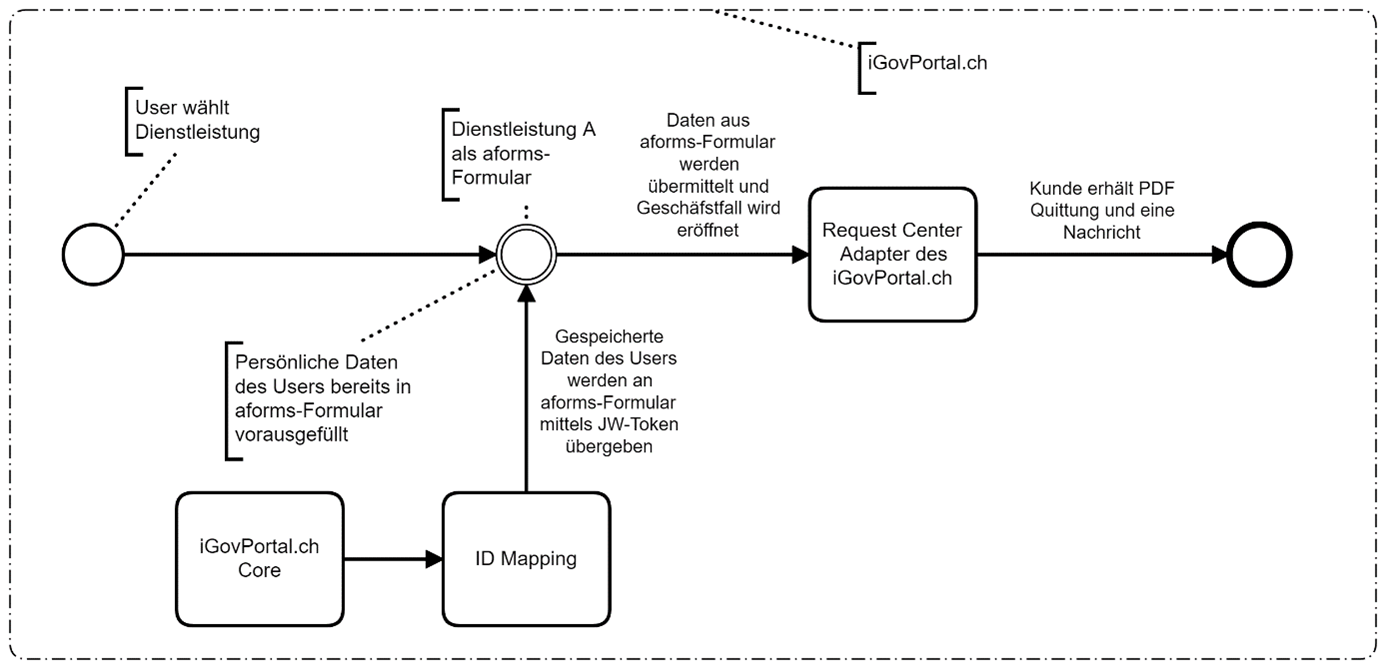Digital transformation at SVA St.Gallen: How AFORMSOLUTION is revolutionizing insurance processes
Since the introduction of AFS, the Social Insurance Institution of the Canton of St.Gallen (SVA) has been able to capture the form data in a…
This automation makes it possible to pre-fill forms, which not only saves users time but also significantly reduces input errors. For reliable proof, the submitted applications are also saved as PDFs in the customer's document mailbox. In addition, the status of each application can be viewed in the portal at any time.
To implement these requirements, we use a special interface of the iGovPortal, the Request Center Adapter. The data transfer carefully differentiates between technically necessary information and additional customer attributes. The data is sent securely and efficiently to the appropriate forms using JW-Tokens1.
Essential user information such as UserID, first name, last name, date of birth, title and email address are automatically entered into the forms. This method not only ensures effective data protection, but also user-friendly and error-free data entry.
In addition, the entire system architecture not only enables the transmission of technical data and user attributes, but also the management of business cases in the backend system. An insight into this process is illustrated in Figure 1.

The user identified on the portal accesses a service based on an aforms form. The personal data known in the portal, which is expected in the corresponding form, is transmitted securely and shown to the customer in the form, already filled out. The user then fills out the remaining fields and submits the form. In the background, a business case is opened with a business case ID, which serves as a reference for the customer to contact the specialist department if they have any questions. The submitted application is also sent as a PDF with a message to the customer's portal mailbox.
Through the interaction of the two components iGovPortal.ch and AFS, the customer is offered additional features in the portal. The customer can log in to the portal once and then has all the services offered, which can be used in advance. The data remains secure in the portal and issues such as data protection are resolved. The customer has an overview of his applications at all times and can view the status at any time.
1A JSON Web Token (JWT) is an open standard that defines a compact and self-contained method to securely and verifiably transfer information between parties as a JSON object, with the integrity of the data guaranteed through digital signatures (https://jwt.io/introduction)
Since the introduction of AFS, the Social Insurance Institution of the Canton of St.Gallen (SVA) has been able to capture the form data in a…
An online form platform was developed in record time for the Lake Lucerne Supervisory Commission (AKV) and the seven participating cantons of Lucerne,…
The summit for social insurance in Switzerland took place on September 3. 35 participants were able to gain a unique insight into the best practices…
